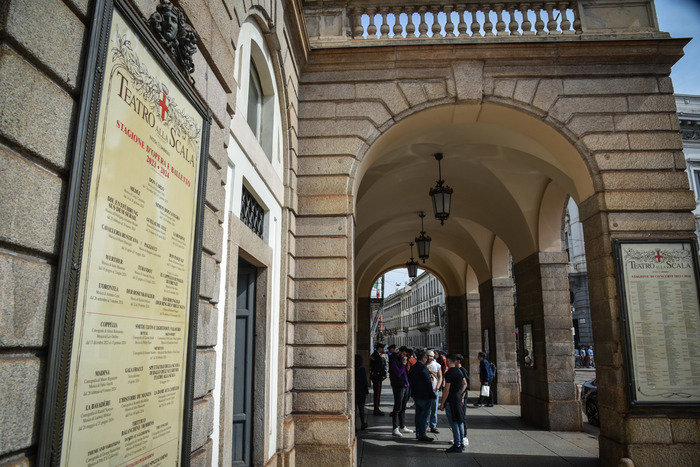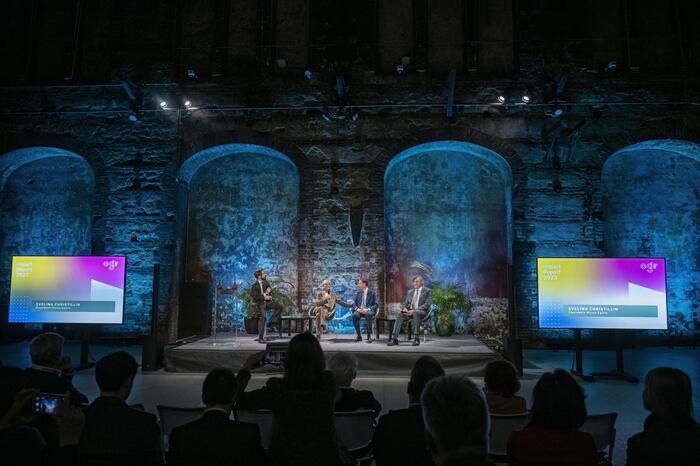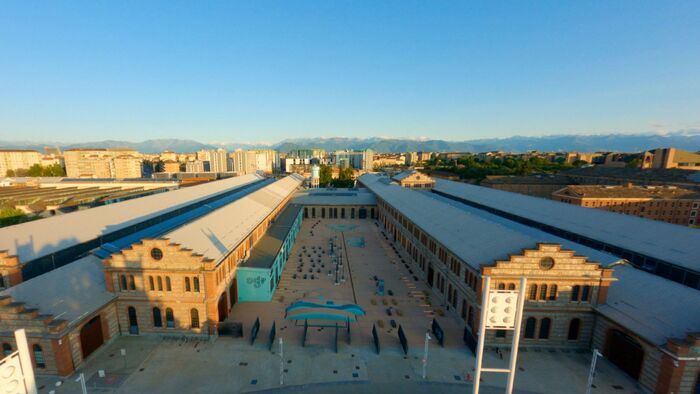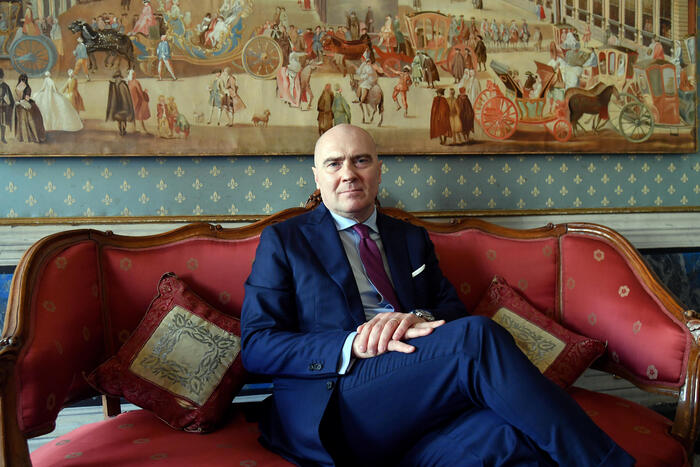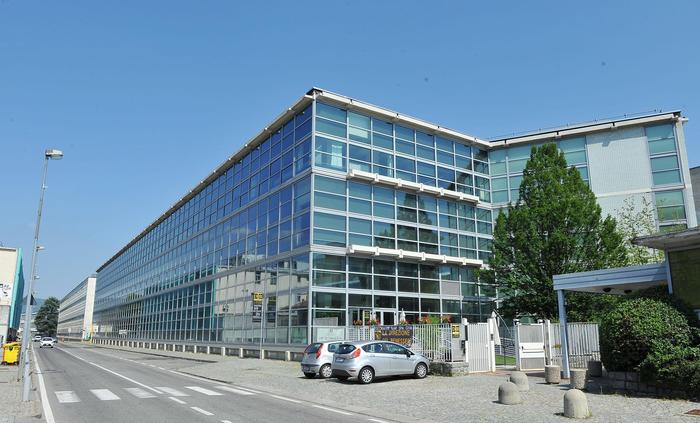The unwavering optimism of Melinda French Gates and Bill Gates has received a new setback.
Data from the latest
Goalkeepers 2022 report
, published by the Gates Foundation on Tuesday, do not give them cause for enthusiasm.
According to their projections, in the best of the possible scenarios, humanity will not eradicate chronic malnutrition, nor will it reduce maternal mortality sufficiently, nor will it reduce the cases of HIV, tuberculosis or malaria to the percentages to which it had committed itself by 2030. Neither these nor any other of the Sustainable Development Goals (SDGs) approved seven years ago by the United Nations are on the right track to be achieved.
The pandemic, the wars in Ukraine and Yemen, and the rollback of women's rights "from Afghanistan to the United States" have weighed on the aspirations of the international community for a more just, peaceful world and a still habitable planet in 2030. But failure is not inevitable.
The graphs produced by the Gates Foundation for 18 indicators (out of 169 contained in the SDGs) show three possible scenarios for 2030: where we will be by that date if things get worse;
where, if the current trend continues;
and where if, with the available tools, the projection is acted upon and improved.
In the best of cases, only two of the 18 SDGs could be considered achieved: reduce under-five mortality to 25 children per 1,000 live births (currently 36 die) and neonatal deaths to 12 per 1,000 births.
The rest of the fight against poverty, hunger, HIV, malaria and tuberculosis, to ensure that women do not lose their lives giving birth, that they have access to sexual health, that health services are universal, as well as vaccines or quality education...
they will be far from being achieved in the most hopeful of futures.
Only as yet unknown innovations can change their calculations, they say.
In the best of cases, only two of the 18 Sustainable Development Goals could be considered achieved: reduce under-five mortality to 25 children per 1,000 live births and neonatal deaths to 12 per 1,000 births.
“Our charts are based on historical data and extrapolations of best practice, and we say that in key areas we need to change the chart.
The only way to do it is with new and spectacular tools, ”says Mark Suzman, director of the Bill and Melinda Gates Foundation, in a video call conversation.
One of those innovations would be the discovery of an effective vaccine against HIV, he exemplifies.
For this reason, the organization invests in ongoing research while calling for more support from the Global Fund for AIDS, tuberculosis and malaria.
"The replenishment of funds will be held in New York in a few days, and it will be a critical moment to save more lives, as 50 million have already been saved in the last two decades," he says.
In this sense,
expects Spain to renew its commitment to this mechanism – it has donated 100 million euros in the last three years after almost a decade of abandonment;
and organized civil society even demands that its contribution be increased to 180 million until 2025.
But health is not the only area in which those responsible for the Gates Foundation see the most likely innovation to bring about drastic and positive changes.
“We believe that we can still make spectacular progress on all the SDGs.
Especially in the two areas highlighted by Bill and Melinda in the report,” says Suzman.
These are gender equality and food security.
The promise of yucca
“The objective should not be to give more food aid, but to ensure that no aid is necessary”, underlines Bill Gates in his specific analysis on hunger in the
Goalkeepers 2022 report
.
From his point of view, the global crisis triggered by the war in Ukraine shows that this scourge, which virulently plagues thousands of kilometers in sub-Saharan Africa, will not be resolved with humanitarian assistance alone.
Investments in agricultural research and development are required, he believes.
The co-president of the Gates Foundation recalls that the African continent is still forced to import 72% of the wheat it consumes simply because it is not capable of producing enough to supply its population.
And increasingly adverse weather conditions make it difficult to boost the productivity of local crops to reduce the deficit.
"And people are starving."
He is not against, he clarifies, donations to supply food, but it is not enough, nor does it solve the root problem, he reflects.
The aim should not be to give more food aid, but to ensure that no aid is needed
Bill Gates
A clear example, says Gates, is offered by the yield of corn, which accounts for 30% of the calories consumed by the population in sub-Saharan Africa.
This crop is very sensitive to rising temperatures: for every degree above 30 a day, field yields drop by at least 1%.
And there will be more and more days when they exceed such levels.
It is already happening and Nigerian farmers are seeing their harvests shrink.
Asked by the World Bank what they are doing to offset this loss, most answer: eat less, sell livestock or simply nothing.
"Fortunately, there are other and better options," celebrates the philanthropist.
"Magic" seeds, which withstand adverse conditions and are more nutritious, are a solution, in his opinion.
“You can make a more intelligent selection of fertilizers and irrigation, in addition to distributing improved seeds.
This way we can anticipate the consequences of heat stress, but only if the international community and national governments take action right now”, adds Suzman in this regard.
Convinced that innovation will save the world, one of the organizations supported by the Bill and Melinda Gates Foundation is NextGen Cassava.
This initiative brings together phytosanitary specialists, programmers, bioinformaticians, gender specialists and food scientists "to offer improved varieties of cassava to the people who need them most."
Chiedozie Egesi, responsible for the project, explains it from Nigeria.
“Cassava is very important for almost a billion people.
But most live in the poorest parts of the developing world.”
However, says Egesi, its potential to combat hunger, especially in Africa, is overlooked.
The war in Ukraine has shown that there is a "global addiction to wheat" and that, as soon as there has been an upheaval, the supply has been compromised.
Egesi sees, in all this context,
an opportunity.
With varieties resistant to certain diseases and the lack of water, Africa could become an exporter of the tuber.
"It holds up where others fail, it is known as the Rambo crop," defends the scientist, also a member of the International Institute of Tropical Agriculture (IITA) in Ibadan (Nigeria) and adjunct professor of phytology and genetics at Cornell University.
Only certain aspects need to be improved, which the NextGen Cassava team is working on.
also a member of the International Institute of Tropical Agriculture (IITA) in Ibadan, Nigeria, and an adjunct professor of plant science and genetics at Cornell University.
Only certain aspects need to be improved, which the NextGen Cassava team is working on.
also a member of the International Institute of Tropical Agriculture (IITA) in Ibadan, Nigeria, and an adjunct professor of plant science and genetics at Cornell University.
Only certain aspects need to be improved, which the NextGen Cassava team is working on.
Everyone likes the fluffiness of wheat flour bread.
If we were able to imitate it to substitute at least 50% for cassava, it would benefit small producers.
It's an achievable dream
Chiedozie Egesi, Head of NextGen Cassava
With programs in Uganda, Ghana, Nigeria, Ivory Coast, Zambia, Tanzania, Rwanda and Sierra Leone, in just five years NextGen Cassava has already achieved some goals.
"We have managed to shorten the cassava crop cycle by half," Egesi proudly states.
And it has not been her only advance, she clarifies.
In Nigeria, they have launched five varieties of cassava adapted to the demands of the market.
Convinced that cassava is part of the solution to food insecurity in Africa, the scientist asks for more support.
“Assistance from the Bill & Melinda Gates Foundation is a good start, but it's not enough.
I know we can do more if people fund our work,” he requests.
One of the areas with the greatest potential, he indicates, is the production of flour from cassava.
“Everyone likes the fluffiness of wheat flour bread.
If we were able to imitate it to substitute at least 50% for cassava, it would benefit small producers.
It is an achievable dream”, he encourages investors.
“It is good to talk, give opinions and have ideas, but it is time to reduce the talk and start acting.
The opportunity is there.
I don't see what is happening today as a problem, but as an opportunity.
But people keep talking about the potential of crops like cassava.
Let's act.
Let's fund it,” she alleges.
The innovative idea that women have power
For Melinda French Gates, the area where innovation can turn the statistics upside down is in the situation of women.
“The truth is that we have never been on the path to achieving gender equality by 2030 ″, she analyzes.
According to data from Equal Measures 2030, a partner entity of the Gates Foundation, it will not be achieved until 2108. A recent study by UN Women raises that time to 300 years, triple, if the current rate of progress continues.
And blaming covid-19 alone for the stagnation, and even setbacks, is an escape from uncomfortable questions.
“Why do gender-neutral events, like a pandemic, have unequal effects on them?” she wonders.
"The honest answer is that we haven't paid enough attention to it yet."
Gender equality will not be achieved until the year 2108, according to data from Equal Measures 2030, a partner entity of the Gates Foundation
Economic inequality, writes Melinda French Gates in the report, is one of the reasons why more progress is not being made.
“The World Bank reported that the difference in earnings between men and women throughout their lives was 172 billion dollars globally before the pandemic,” highlights the philanthropist.
It is in this field where you have to use your imagination, she thinks.
"For years, efforts (including that of our foundation) have focused on 'empowering women economically,' a circumlocution of providing them with jobs or cash."
That is not the solution, because it does not ensure that they have the power to decide what to do with that money, nor the possibility of combining work and care.
“Many women in low-income countries make a living from informal jobs, which means they have to weather crises without a regular salary, paid holidays, or unemployment insurance.
Many resort to survival strategies that trap them in poverty”, describes French Gates.
“Digital financial tools, such as mobile money accounts, are an efficient way for governments to provide gender-responsive aid transfers.
And those mobile payments give women more control over their money than a cash payment, because it's harder for their husband or someone else to claim it for themselves."
There are already examples of new technologies, innovations and initiatives that give women that power over their money, but also over their bodies and in their societies.
French Gates cites a few, from India to Kenya.
But more is needed.
And the benefits, she says, will be for all people and in all areas of the SDGs: education, health, prosperity, peace.
An example: for every euro invested in childcare, economic activity increases by seven.
This is the case in Kenya or South Africa.
Spain, an example
"This is not the time to despair, but to act," insists Suzman.
A demand similar to the one launched a week ago by the United Nations Development Program when presenting its Human Development Index, which shows a setback to the levels of global well-being of 2016. Such an organization also suggested investing in innovation to achieve catharsis .
In the middle of the term for the fulfillment of the SDGs – seven years have passed and seven remain ahead – development actors have already made their voices heard in calls for action.
The criticism is shared.
“More and more countries are predominantly focused on their own problems.
High-income earners are withdrawing their aid and other commitments.
For example, the United Kingdom has made very important cuts in recent years”, criticizes Suzman.
But there are “encouraging signs”.
Spain is a good example, says the director of the Gates Foundation: "It is an atypical and unusual case, since it has made significant increases in the last two years in terms of health in general, and specifically with contributions to CEPI [global alliance for research and development of vaccines] and the response to covid-19”.
You can follow PLANETA FUTURO on
,
and
, and subscribe
to our 'newsletter'
here
.




